
Publications and Resources
At the Institute for Integrative Psychotherapies, we are dedicated to advancing the field of psychotherapy through a robust collection of publications and ongoing research. Our aim is to provide clinicians with access to the latest insights, evidence-based practices, and innovative techniques that enhance therapeutic efficacy and support client wellbeing.
Advancing Psychotherapy Through Innovative Research
Psychotherapy is an evolving field where integrating new ideas, theories, and techniques is crucial for enhancing treatment efficacy. Our mission is to equip clinicians with the knowledge and tools to provide effective, evidence-informed therapies that prioritise client autonomy and address their unique needs. By highlighting current research on innovative psychotherapeutic practices, we aim to deepen understanding of their underlying mechanisms and foster ongoing exploration of the most effective treatments for clients.


Peer Reviewed Articles
de Jong, S., van Donkersgoed, R. J. M., Timmerman, M. E., aan het Rot, M., Wunderink, L., Arends, J., van Der Gaag, M., Aleman, A., Lysaker, P. H., & Pijnenborg, G. H. M. (2019). Metacognitive reflection and insight therapy (MERIT) for patients with schizophrenia. Psychological Medicine, 49(2), 303–313.
A randomised, controlled clinical trial studied the effectiveness of Metacognitive Reflection and Insight Therapy (MERIT) for people with schizophrenia.
Click here for more information on this study.
Brymer, E., & Schweitzer, R. D. (2022). Learning clinical skills: An ecological perspective. Advances in Health Sciences Education : Theory and Practice, 27(3), 691–707.
Clinical psychology training has traditionally focused on competency-based learning and the scientist-practitioner model. This paper proposes a shift towards an ecological paradigm and suggests using representative learning environments to enhance training effectiveness.
Click here to read this paper.
Misso, D., Schweitzer, R. D., Dimaggio, G., & Callahan, J. L. (2019). Metacognition: A Potential Mechanism of Change in the Psychotherapy of Perpetrators of Domestic Violence. Journal of Psychotherapy Integration, 29(3), 248–260.
A research study explored the relationship between metacognition, personality functioning and domestic violence.
Click here for more information on this study.
This paper explored the use of Metacognitive Interpersonal Therapy (MIT) in a case of domestic violence.
Click here to read the paper.
Lysaker, P., Gagen, E., Moritz, S. & Schweitzer, R. (2018). Metacognitive approaches to the treatment of psychosis: a comparison of four approaches. Psychology Research and Behavior Management, 2018(11), 341–351.
Bargenquast, R. & Schweitzer, R. (2014). Metacognitive Narrative Psychotherapy for people diagnosed with schizophrenia: An outline of a principle-based treatment manual. Psychosis, 6(2), 155–165.
(2024). The anatomy of coercive practices in healthcare settings. Australian Journal of General Practice, 53(11 Supplement), S137-S141.
(2023). Finding the Person in the Disorder: Adapting Metacognitive Reflection and Insight Therapy for Bipolar Mood Disorder (MERIT-BD). Journal of Contemporary Psychotherapy, 53(1), 19–28.
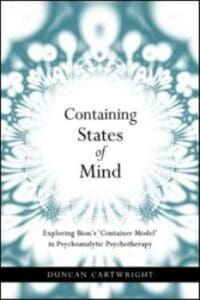
Author: Duncan Cartwright
Wilfred Bion’s insights into the analytic process have had a profound influence on how psychoanalysts and psychotherapists understand emotional change and pathological mental states. One of his most influential ideas concerns the notion that we need the minds of others to develop our own emotional and cognitive capacities.

Author: Duncan Cartwright
What turns an apparently 'normal' individual into a killer?
Many people who commit "rage type" murders have no history of violence. Using psychoanalytic theory and a number of case studies, this book isolates key psychological factors that appear to help explain why such acts of extreme violence occur.
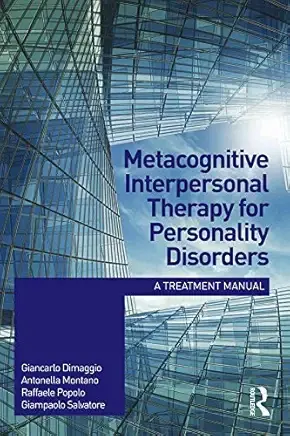
Authors: Giancarlo Dimaggio, Antonella Montano, Raffaele Popolo and Giampaolo Salvatore
Patients with personality disorders need targeted treatments which are able to deal with the specific aspects of the core pathology and to tackle the challenges they present to the treatment clinicians. Such patients, however, are often difficult to engage, are prone to ruptures in the therapeutic alliance, and have difficulty adhering to a manualised treatment.
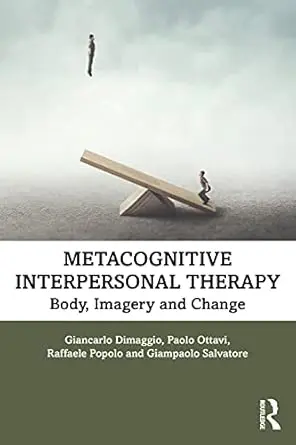
Authors: Giancarlo Dimaggio, Antonella Montano, Raffaele Popolo and Giampaolo Salvatore
Metacognitive Interpersonal Therapy (MIT) remains unique in providing instruments for dealing with clients with prominent emotional inhibition and suppression, a population for whom treatment options are largely lacking.
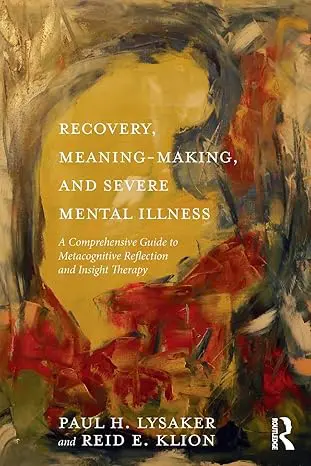
Authors: Paul H. Lysaker and Reid E. Klion
Recovery, Meaning-Making, and Severe Mental Illness offers practitioners an integrative treatment model that will stimulate and harness their creativity, allowing for the formation of new ideas about wellness in the face of profound suffering.
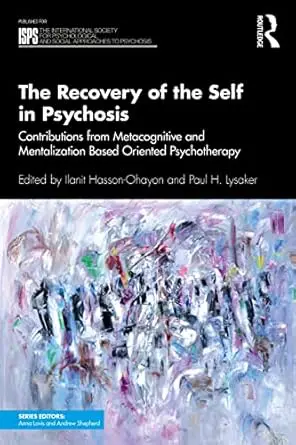
Edited by Ilanit Hasson-Ohayon and Paul Lysaker
The Recovery of the Self in Psychosis details specific therapeutic approaches as well as considers how treatments can be individually tailored and adapted to help persons whose mental health challenges may be either mild or more severe.
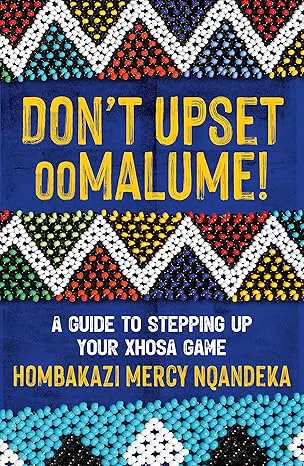
Author: Hombakazi Mercy NQandeka
No need to fret. Don't Upset ooMalume! captures the essence of Xhosa heritage and culture, and explores different aspects of village life. It covers a range of topics, from major Xhosa life ceremonies and traditional clothing, to the significance of uronta (the rondavel) and ubuhlanti (the kraal). Not forgetting the importance of traditional food, the author describes popular dishes, edible forage and even medicinal plants.

